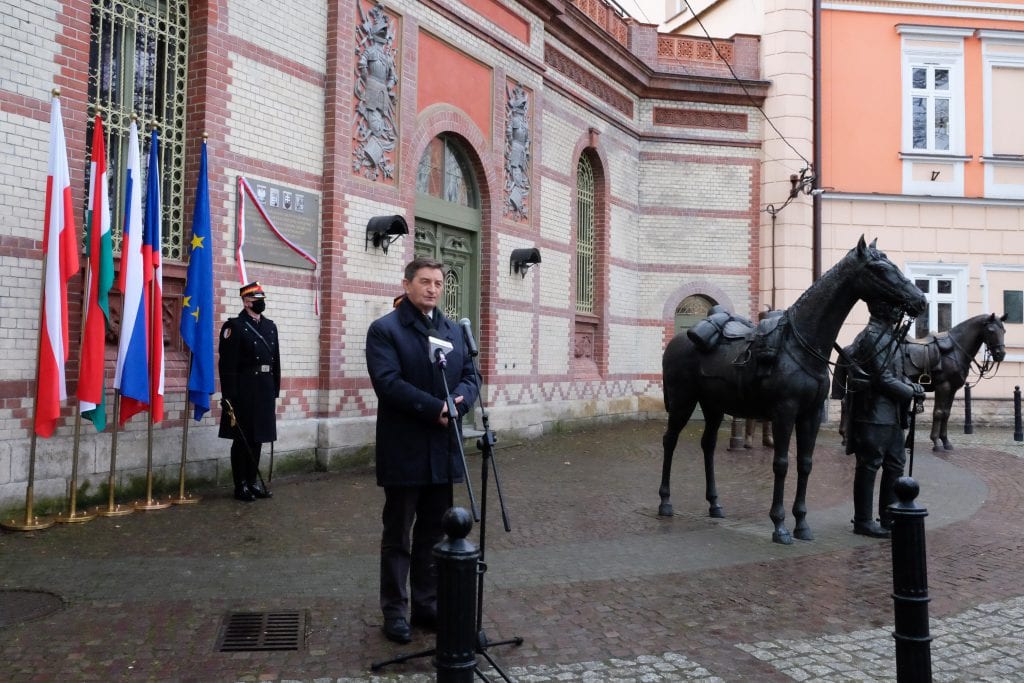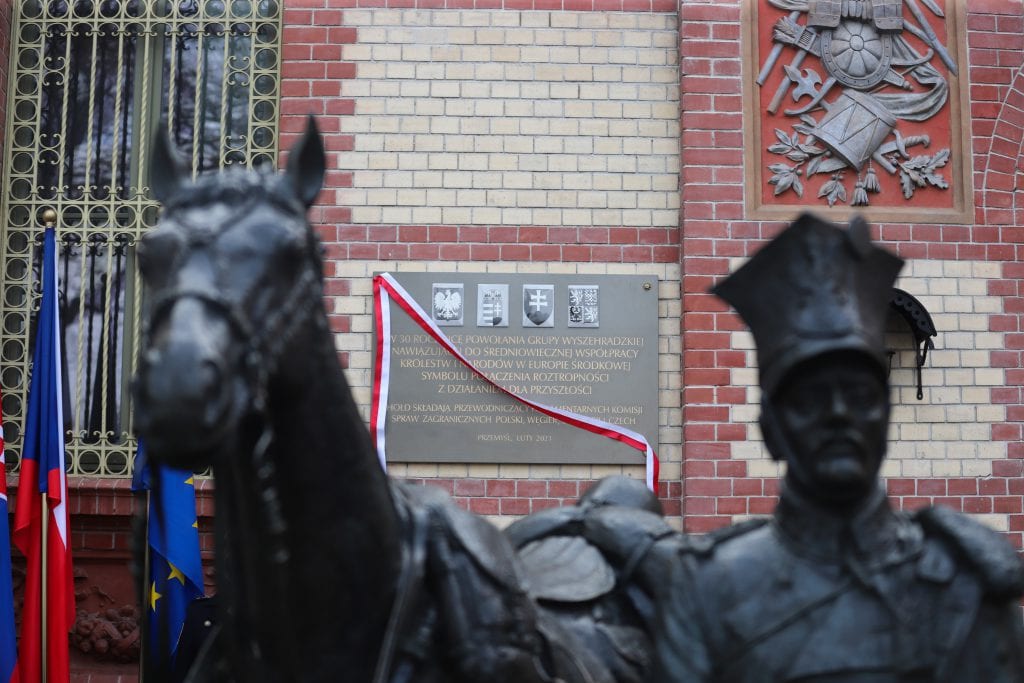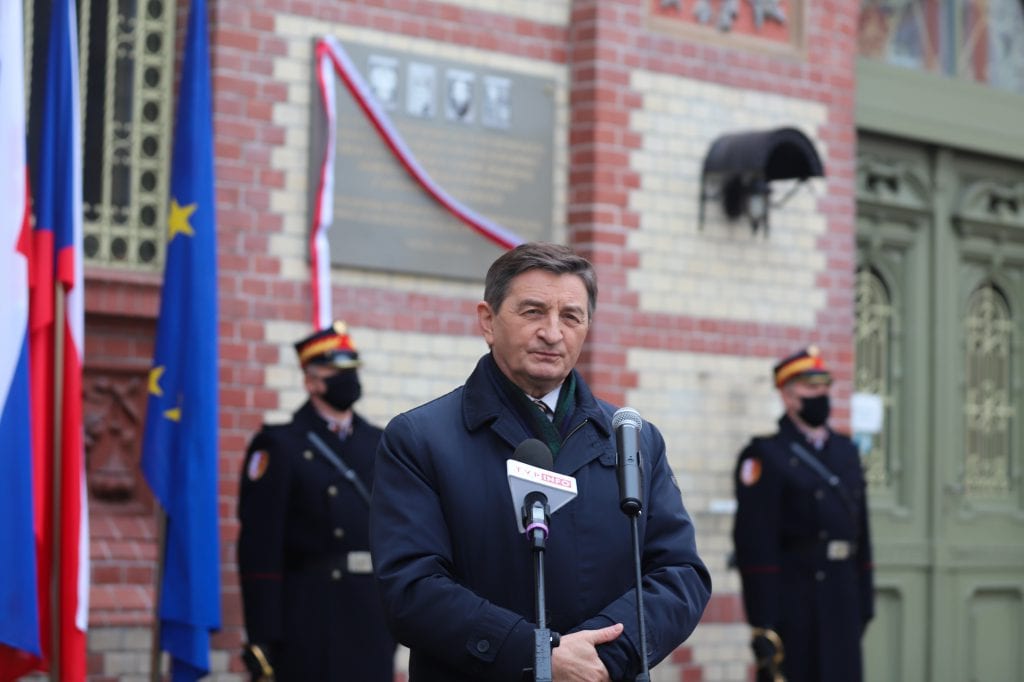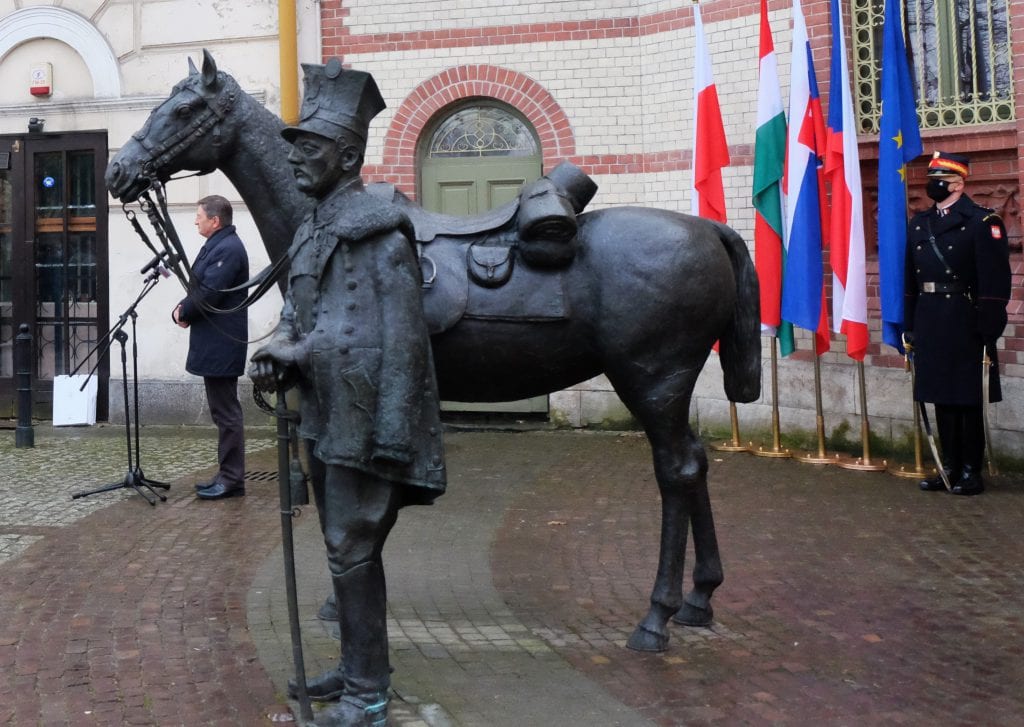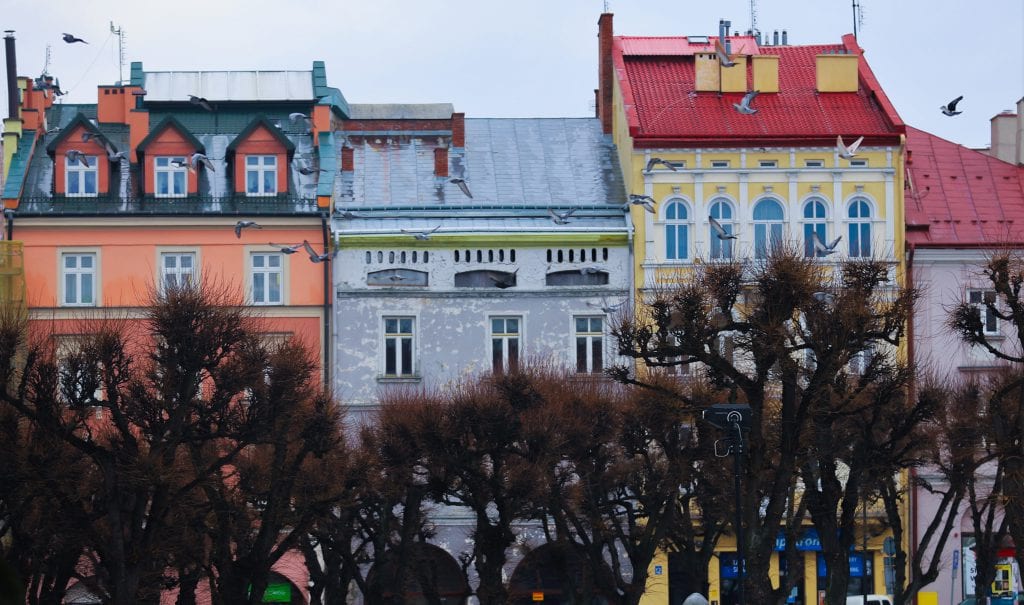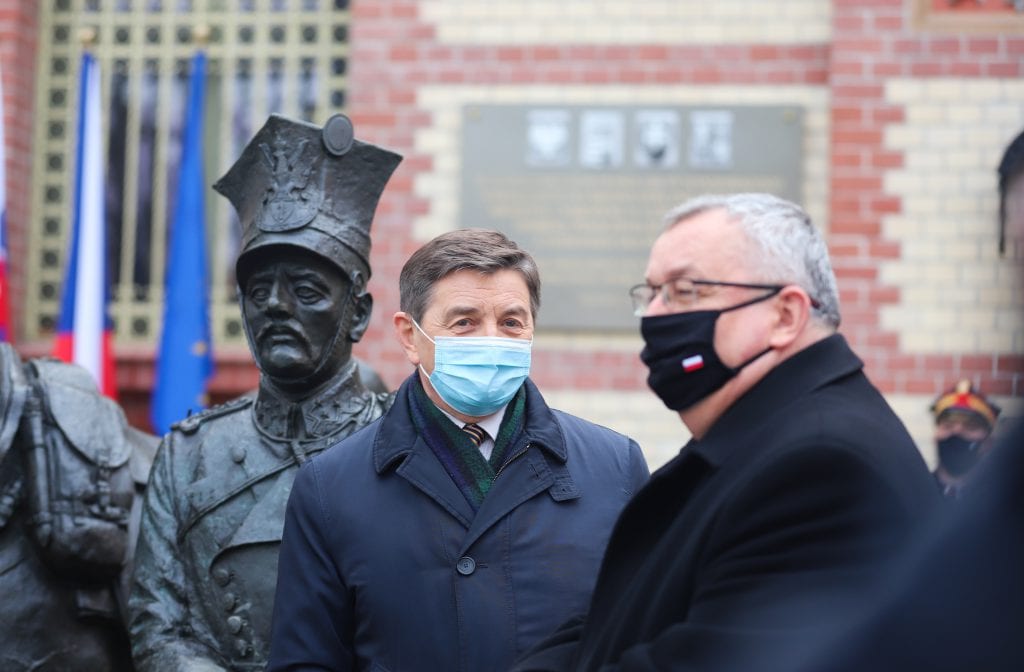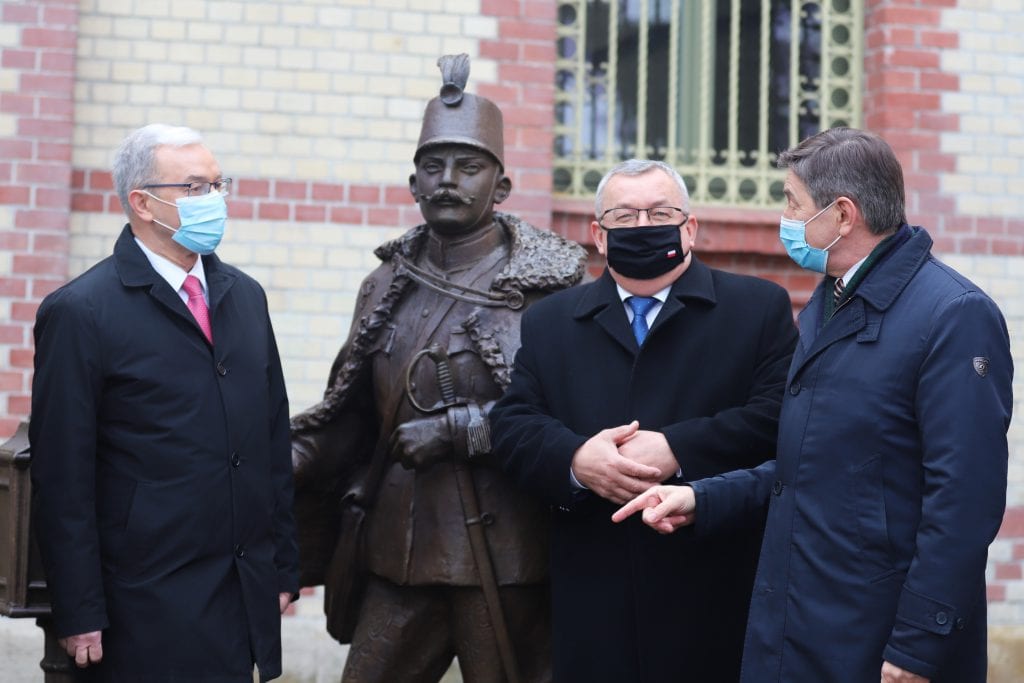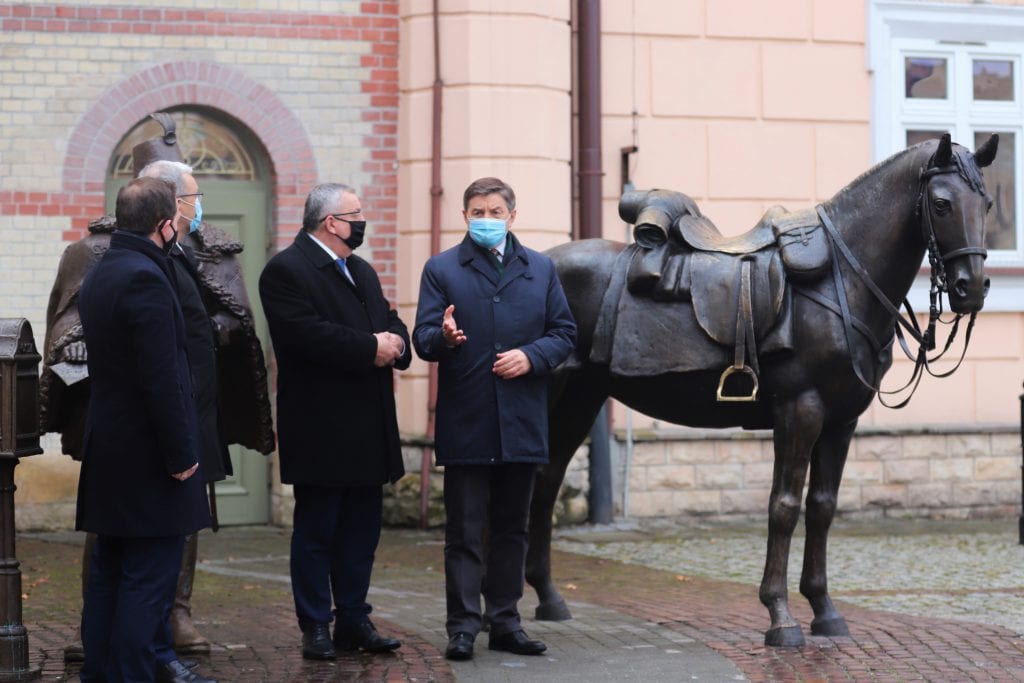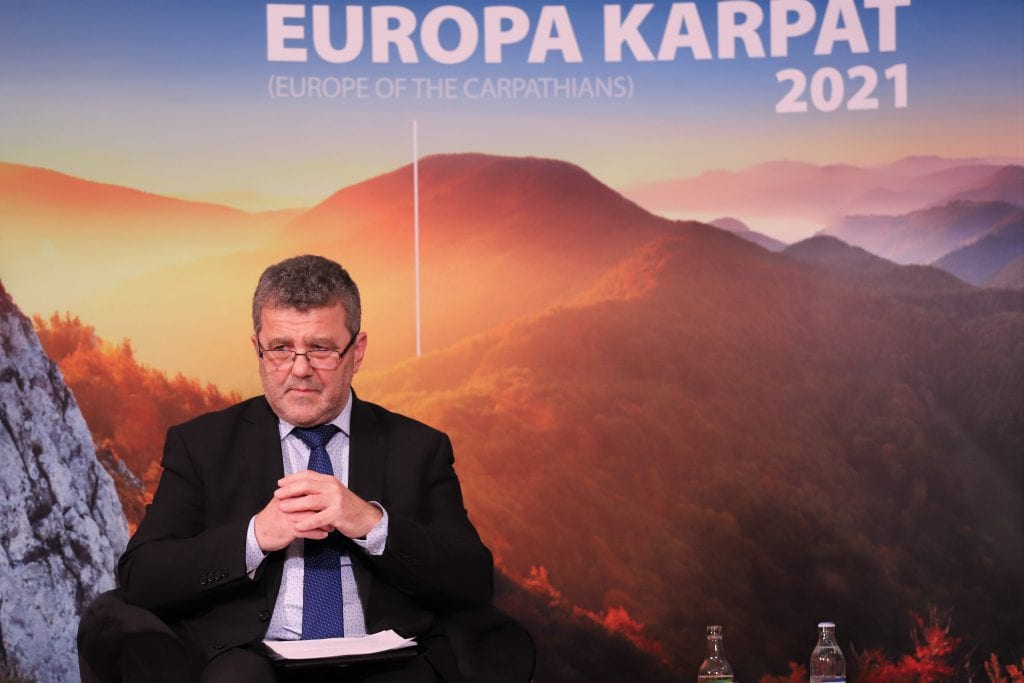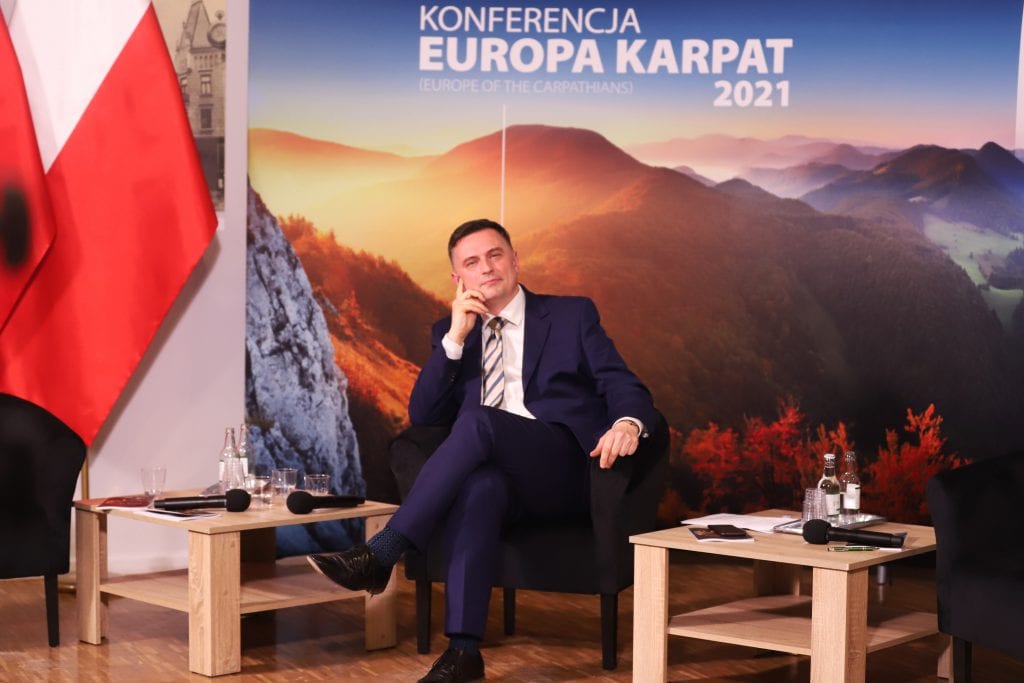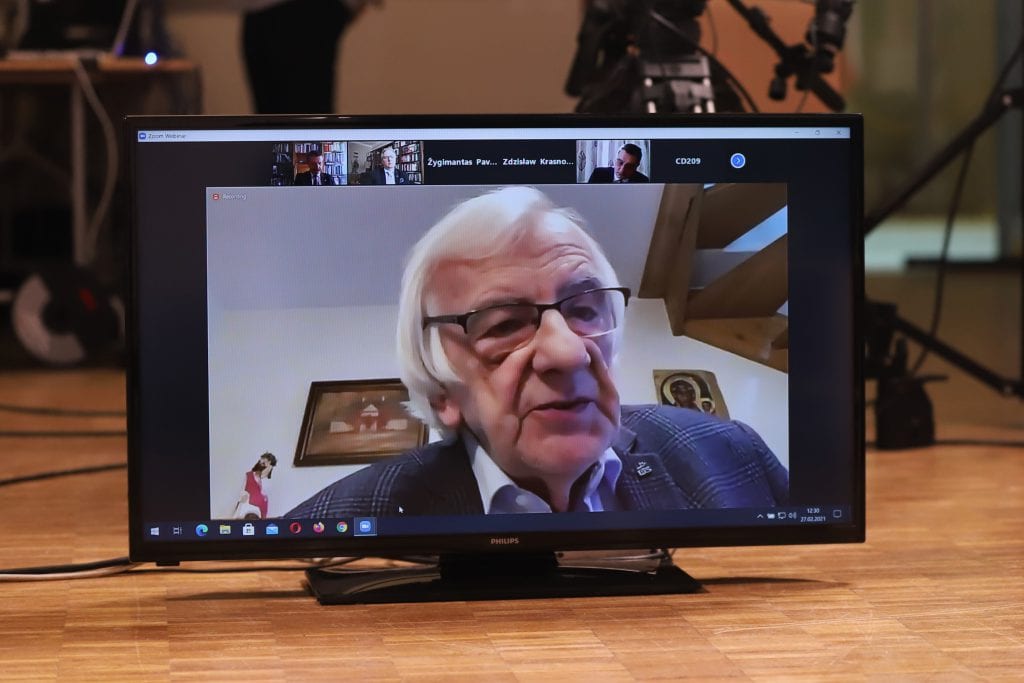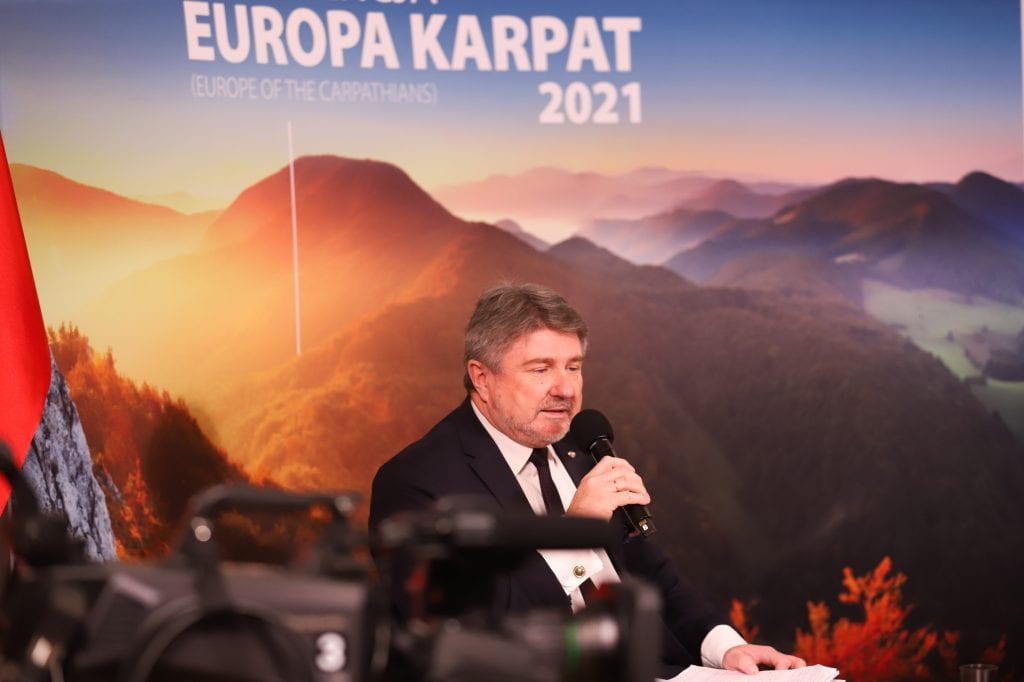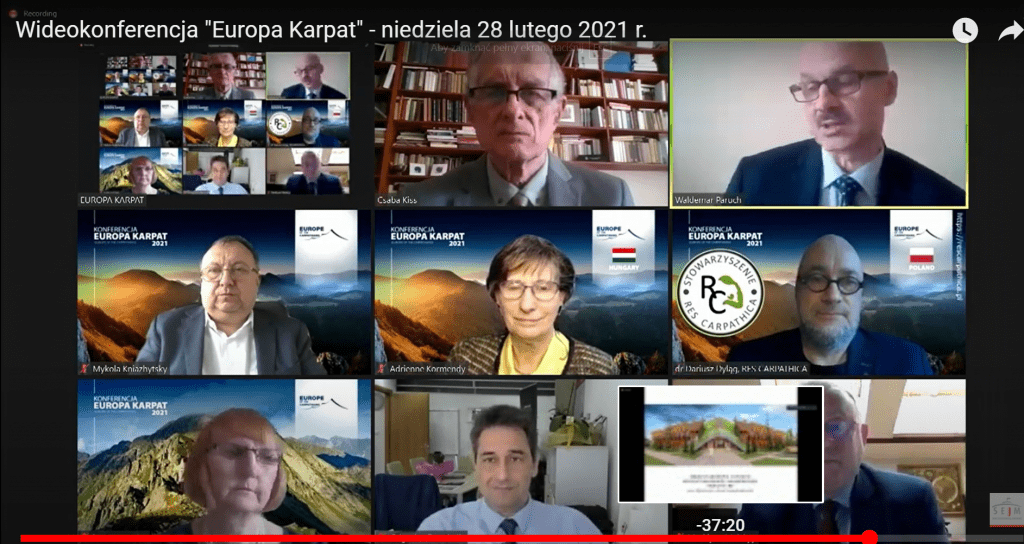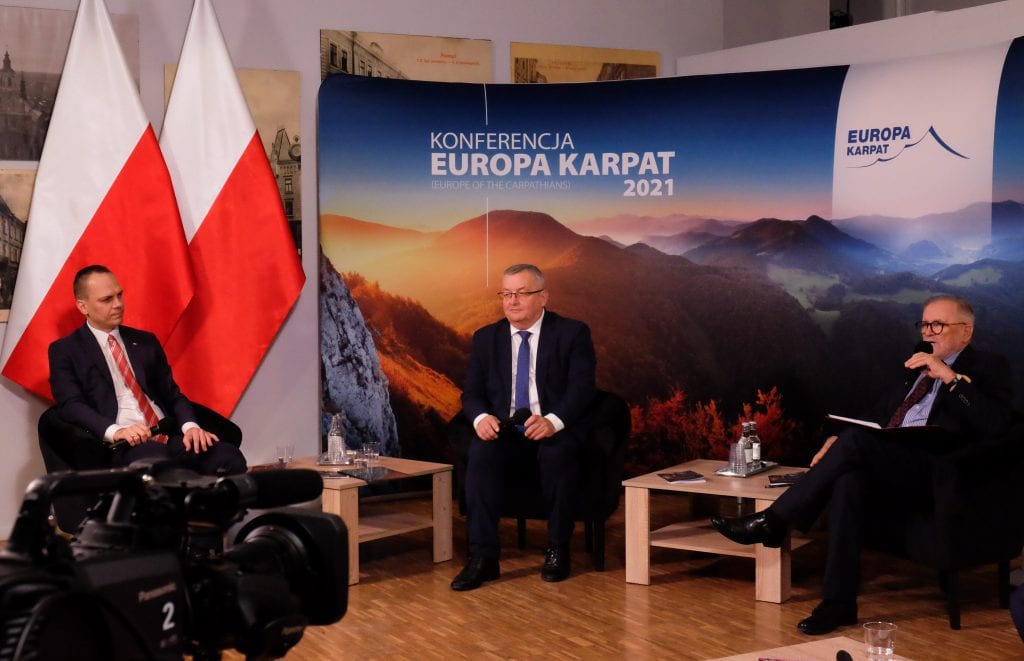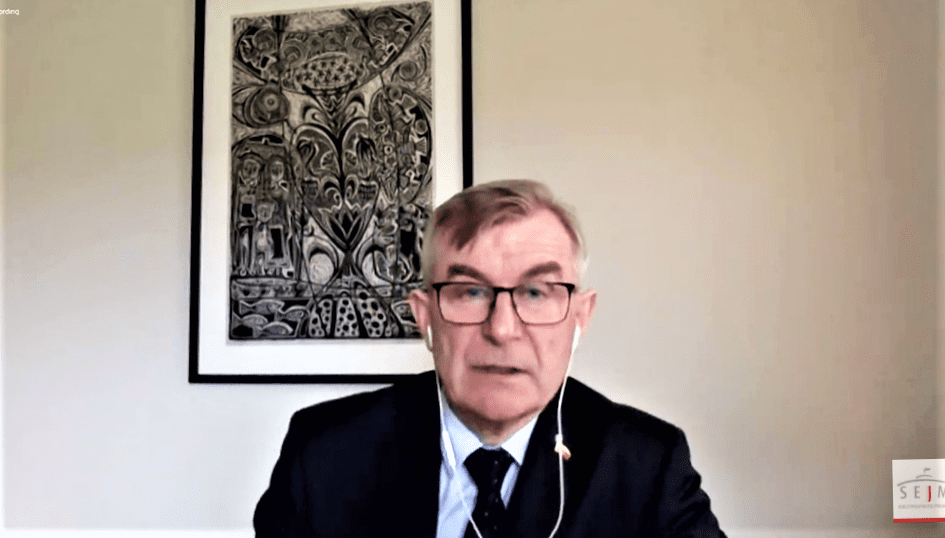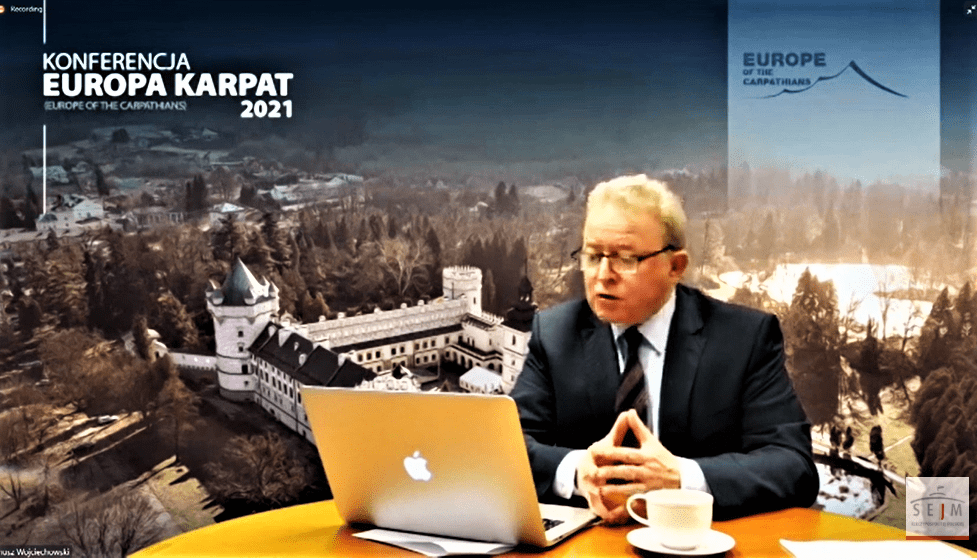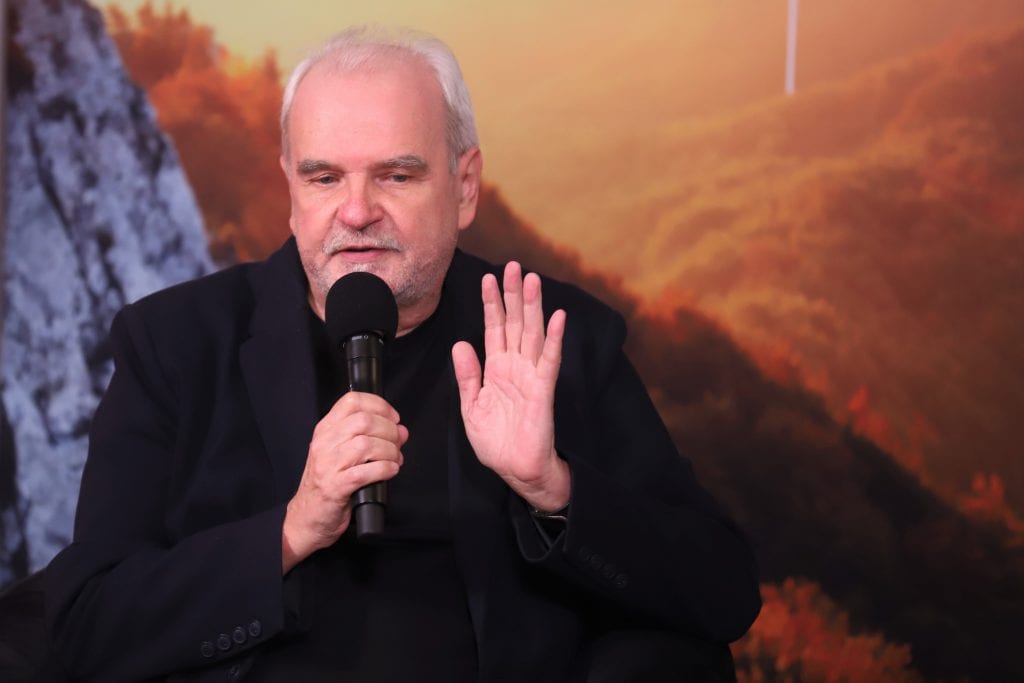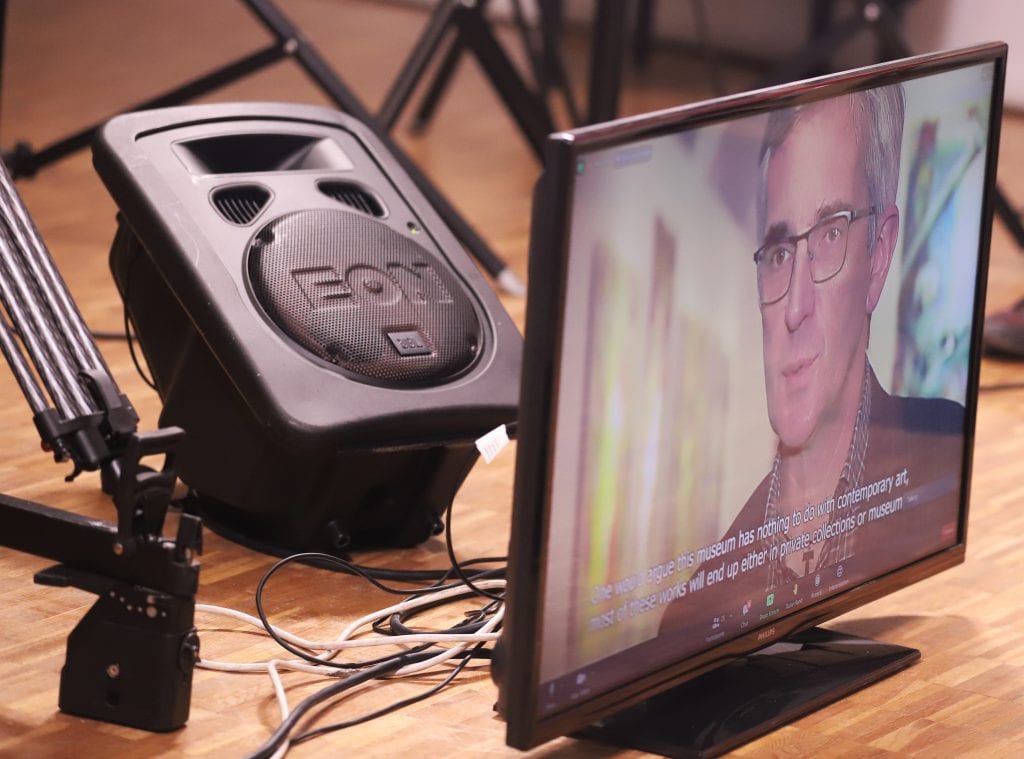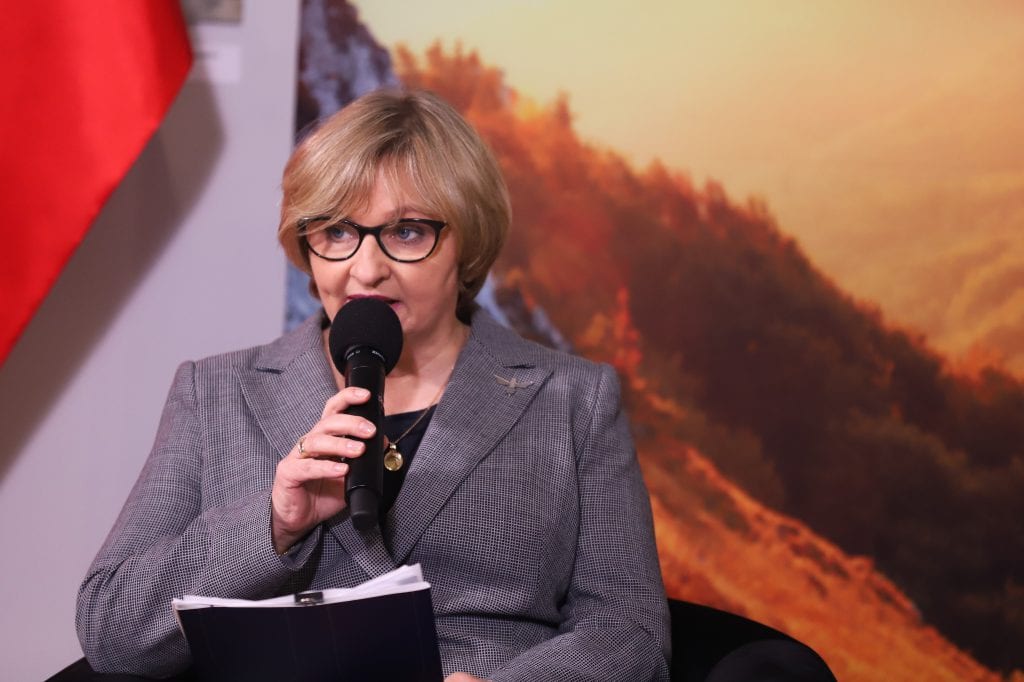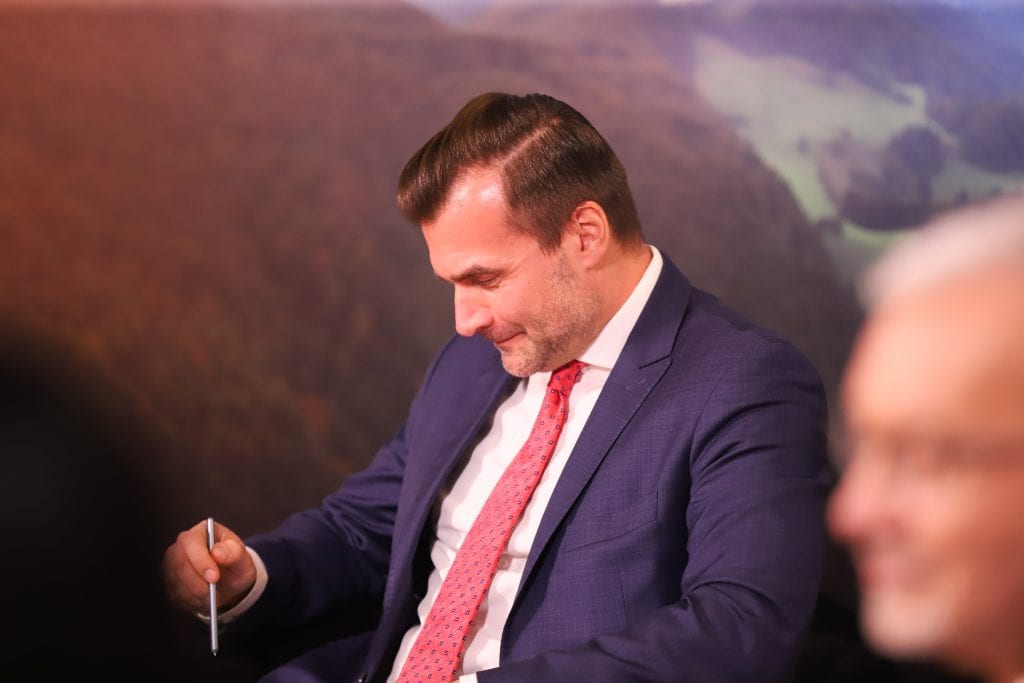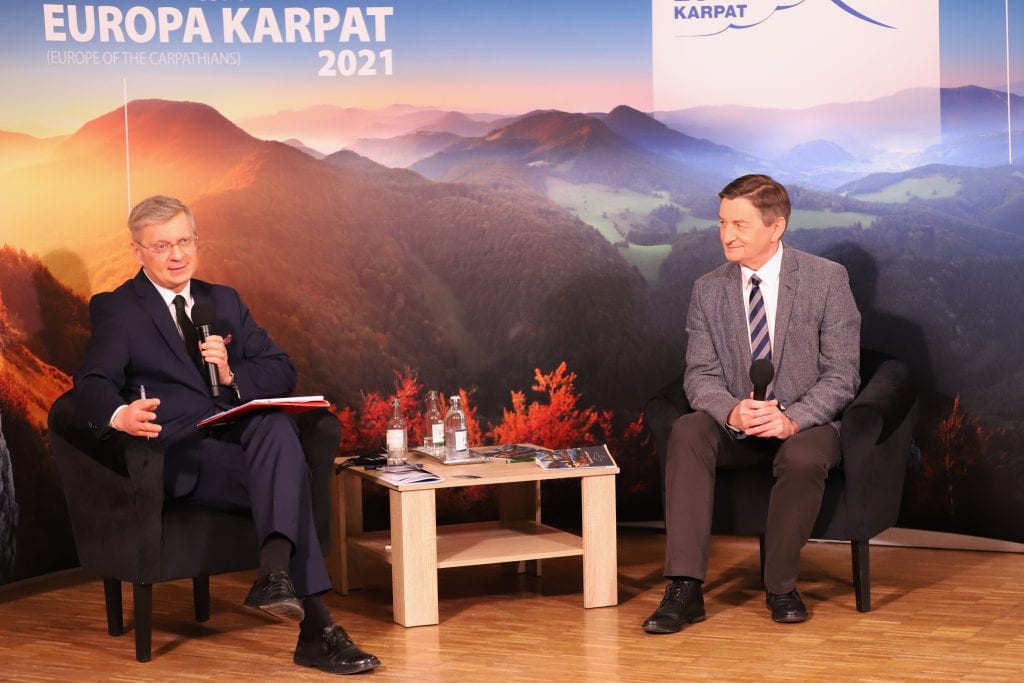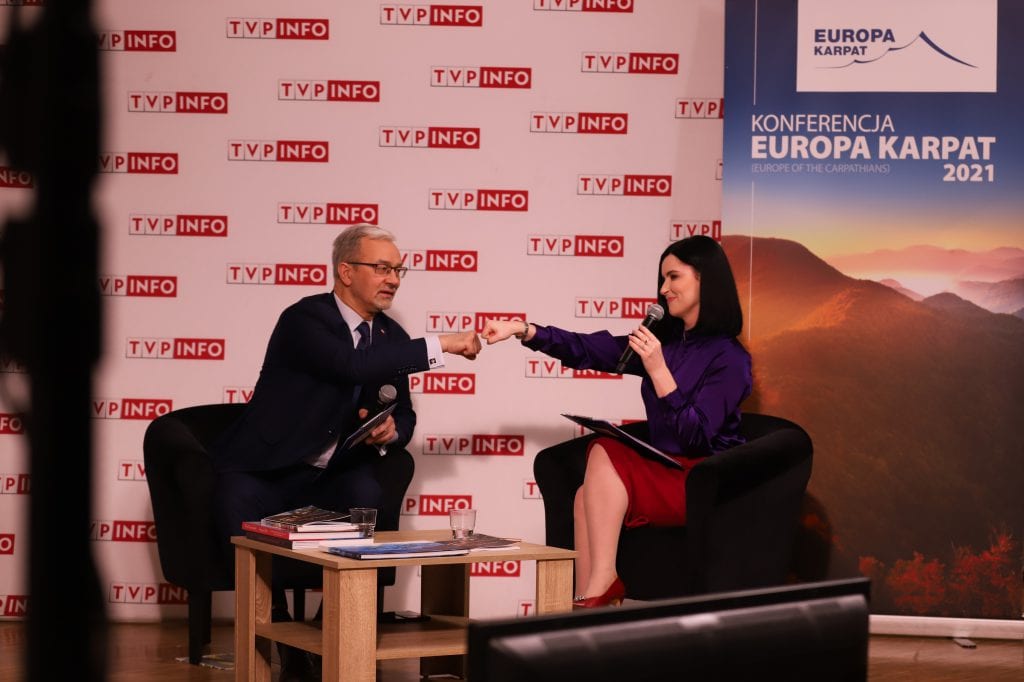Central Europe, the Europe of the Carpathians, is looking for a new path. It draws inspiration from the past, but it can be led into the future by reasonable cooperation based, among others, on parliamentary diplomacy. - It is a guarantee of diversity of views, which reflects the will of voters and gives a great opportunity for development - argues Marek Kuchcinski, founder of the Carpathian Europe, former Marshal of the Sejm and Chairman of the Sejm Foreign Affairs Committee.
This is already the 28th Carpathian Europe, which this year (27-28 February) had a special dimension, because for the first time it was also held in the online format. At the time of the pandemic, we can clearly see the challenge of dialogue between European countries. We can also see more and more clearly that the Old Continent must unite in the face of the challenges posed by epidemiological threats. We need to think about how to reconcile the need for economic competitiveness in the face of such powers as the US or China with the diverse economies of Central European countries. Does our continent need a unified voice outside, or perhaps a multi-voice? Tri-Council, Visegrad Group, unification of the Carpathian countries are just another concept within the internal challenges of our continent. That is why dialogue is so important, which can take place at the governmental, parliamentary and expert levels or combine all these diplomatic means in conferences such as Carpathian Europe. This year's meetings were divided into eight panels.
- During this edition of the Carpathian Europe we initiated efforts to inscribe the entire Carpathian region on the UNESCO list, which would be a precedent on a global scale and would allow greater promotion and protection of this unique region, because Central Europe is the greatest of all continents richness of cultures, languages - maximum diversity. 40 Nobel Prize winners, the largest number of outstanding personalities - from the arts to the economy. Our goal is the balance between economy and ecology, protection of natural areas, cultural heritage, wise use of natural resources - especially drinking water - development of services or infrastructure and strengthening of competitiveness and innovativeness - emphasizes Marek Kuchciński.
30 Years of the Visegrad Group. New challenges
The momentous anniversary of 30 years of Visegrad cooperation, which includes the Carpathian countries, makes us aware not only of the rich legacy of regional ties, but also of the constant need to develop and strengthen them, including at parliamentary level. This is particularly important in view of the challenges that Europe is currently facing. The existing cooperation in the field of information exchange on COVID-19 pandemic management will be extended to the general areas of security management.
The Visegrad Four is a unique success story. Its task is to maintain political consensus for the further development of Central Europe. Here the V4 realizes the role of a locomotive for the entire region.
Central Europe in the international environment (creating a new continental and global order)
Central Europe should also be actively involved in shaping the international environment by creating a new continental and global order, especially in the perspective of activating the actions of major international players such as the United States, China and Russia. The cooperation formats in which the Carpathian countries participate - the Bucharest 9, the Trilateral Initiative - are helpful in this. Changes in the U.S. administration after the presidential election not only did not reverse the trend of strengthening the transatlantic partnership, but also gave it further impetus for development, as evidenced by the open support for the Trilateral Initiative. The challenge, on the other hand, is the intensification of activities in our region by China and Russia.
The COVID-19 pandemic raised questions about the capacity of national health care systems, international solidarity, as well as the EU crisis management mechanism. All these issues, combined with other challenges such as migration policy, climate policy, the shape of the European Union after Brexit, or events beyond its eastern border, create the ground for a necessary discussion about the future of Europe, of which the countries of our region, including the Carpathian countries, should be an active participant.
The key issues for the future of the Union and for our country are the enlargement of the EU to include countries that aspire, and the future of integration. We should consider whether to deepen it and build a single state, or to preserve nation states that cooperate closely.
The conference advocated for the establishment of a parliamentary forum of the Tri-Portuguese countries, not just the V4 Assembly. This would be a place to discuss strategic issues affecting the entire region to help resist pressure from Russia and China.
V4/ Tri-City - development of border areas
Tri-Moras is an initiative that originated as a political one, but it's gaining an economic character: building transport and energy connections, building systems that will allow us to transfer sources of energy, including clean and renewable energy, in a coherent, stable, secure way. We are investing in new technologies, including digital. We have great potential for developmental changes to be born. Synergy between the countries of the region and combining potentials in different fields is necessary. To strengthen them, we also need cooperation at the level of parliaments.
The signed agreement on cooperation between the Carpathian Euroregion - Poland and the Secretariat of the Carpathian Convention will allow for better coordination for sustainable tourism in the Carpathians.
Carpathian Strategy is an opportunity for the development of border areas - key for cohesion and integration of the Tri-Carpathian area. The necessity of regional cooperation was emphasized e.g. in the field of infrastructure and energy investments. In April the Forum of the Tri-City Initiative Regions will be held in Lublin where the regional economic network of the regions will be established. Its task will be to bring together our entrepreneurs, associations, NGOs that operate at this more local level.
Digital Europe as a basis for a strong economy and the development of social services, and as an opportunity to deepen cooperation between the countries of the Tri-Cities (TSI)
We focus on the development of digitization of traditional industries: construction, transportation, trade, energy, 5G networks in TSI countries, and common standards for maintaining cyber security.
Using formulas such as the Visegrad Group, Tri-Moravia or the Carpathian Strategy, it is worth thinking about creating alternatives to some of the existing communication formulas. Our region and the European Union would build a reserve resource in case technology giants persistently apply algorithmic policies that polarize public opinion and destroy social cohesion.
North-South Infrastructure 2040 The Green Deal - Road Safety. Safe and close for travelers. Safe for the environment.
A safe transport network that responds to the calls of the Green Deal is extremely important for the Carpathian region. We need connections that make transport predictable and safe. Via Carpatia and its branches are important for all participating countries, including Slovenia and the Balkans. Via Carpatia is a road of modern technologies, economic undertakings will be able to locate around it and the economic expansion to the East will continue. We are intensifying efforts to have this route of modern environmentally friendly technologies included in the TEN-T network. By the end of 2025. Poland will have built its section of Via Carpatia - it is already equipped with the most modern control systems, management in modern technologies to assist drivers. It is also on other road routes. For the Carpathian region the most important is a good network of communication by car (Via Carpathia, Via Baltica, A1, S3), rail and air.
Via Carpatia is not only a modern, but also a safe route. Our goal is to reduce the number of accidents. We also need to take care of the condition of the roads that will access it. In the next 10 years, the TEN-T should be completed in order to conduct transport with limited carbon dioxide emissions and meet the objectives of the European Green Deal.
The European Green Deal - an opportunity for the environment and organic farming
There is a need for greater Polish participation in organic farming. The Carpathians have the potential to become an example of a shift towards sustainable food systems and sustainable agricultural practices, which will also translate into taste and nutritional value of food. The "from field to plate" strategy at the heart of the European Green Deal aims to make food systems fair, healthy and environmentally friendly, to promote humane farming methods and to develop environmentally friendly tourism.
We need changes in the Union to become a competitive and resource-efficient economy, with lower greenhouse gas emissions, natural carbon sequestration, short supply chains.
Family farms have a key role to play in the dynamism of rural communities. This is because they produce food and many other products and services, ensuring the preservation of cultural traditions, the development of landscapes and the management of natural resources.
Rural areas must be attractive to young people and families to halt and even reverse population decline and the loss of local resources and services that often follows.
A fundamental element of the European Green Deal goals is forests. The new Forestry Strategy will set out the contribution of forests to the goal of becoming a sustainable and climate-neutral economy by 2050.
One of the key ecosystem services provided by forests is water-related: they purify water, regulate water flow, and can help protect soils from erosion and desertification. In addition, forests play a key protective role in areas at risk of flooding or avalanches. The new forest strategy will seek to better prevent damage and destruction, ensure forest resilience and health, and maximize and encourage the provision of these functions while increasing their productive capacity.
Cultural cooperation - preserving our common heritage
Geographically, politically and economically speaking, the ties between the different ethno-cultural identities are extremely strong in Carpathian Europe, which means that we can be a model for future societies throughout Europe. Europe's diversity is its great asset. It is this part of Europe that has created a model of democracy, it is a region that for centuries has been characterized by polyphonic, multi-ethnic, multi-religious small homelands based on tolerance and pluralism, which were annihilated during and immediately after World War II. It is time to wipe away the 20th century past that killed this diversity and introduced unification.
- The fact that half of the UNESCO tangible and intangible monuments from all over Europe are located in Central Europe means that this heritage, the "eastern lung", is an equal place for the entire European civilization - said Marek Kuchciński, summing up the conference.
Born in Times of Freedom. How to effectively connect and institutionalize youth cooperation in Central Europe?
The last panel of the Carpathian Europe conference in Przemyśl was devoted to those born in times of freedom. The panelists discussed, among other things, how to effectively connect and institutionalize youth cooperation in Central Europe and what to do to make it the most desirable place for them to live. We want to support young people in their development, language learning, getting to know the world, but also to build their self-esteem and pride in their roots. Eastern Europeans should not have complexes in comparison to the West. Together we think about what to do to make CEE attractive for young people, and Poland is becoming more and more so because of nurturing values, sense of security and support policy manifested for example by lowering taxes.
text/pot. mo
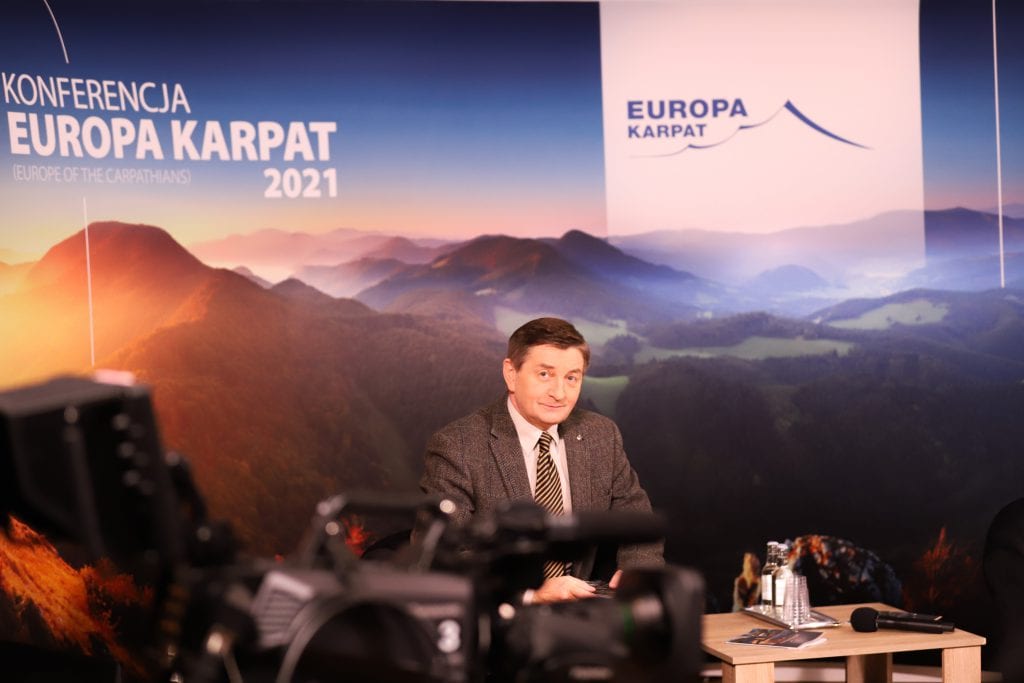
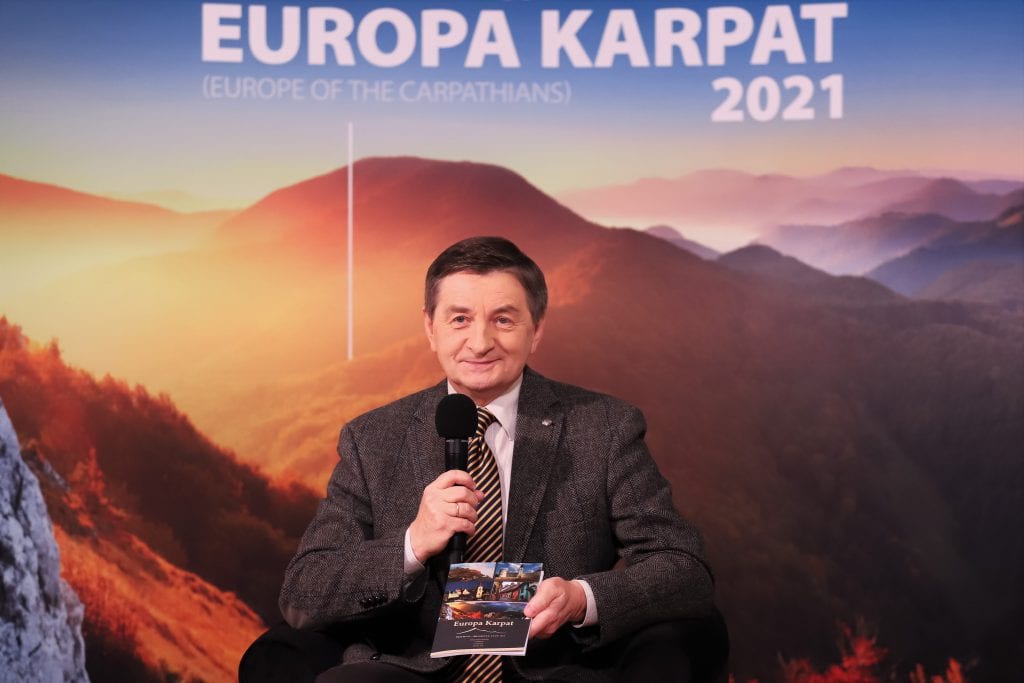
As part of special events accompanying the video conference "Carpathian Europe", a plaque commemorating the 30th anniversary of the Visegrad Group was unveiled in Przemyśl.
In this way the chairmen of the foreign affairs committees from the Czech Republic, Poland, Slovakia and Hungary commemorated the anniversary of the formation of the V4 on February 15th 1991. Marek Kuchciński emphasized that Przemyśl is a special and symbolic place for all the countries of the Visegrad Group and therefore it was considered worthwhile to commemorate the anniversary in this city. - Here, over 100 years ago, in the Przemyśl Fortress, servicemen from all the nations of the former Austro-Hungarian Empire served. This is where the ancestors of today's parliamentarians served and fought. This is a symbolic place also for the reason that Ryszard Siwiec comes from here - one of the heroic heroes who protested against the 1968 invasion of Czechoslovakia by Warsaw Pact troops and a hero of the nations of our Visegrad Group, along with Jan Palach and others who gave their lives in defense of freedom," he said.
